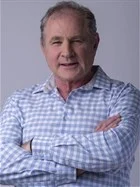





Edsel
The Edsel, introduced by Ford in 1957, has become synonymous with the proverbial lead balloon. After a campaign that took hype to a new level, people flocked to the dealerships in record numbers. Unfortunately, to look, not to buy. The Edsel lost $250 million in 1958 (that's $2.25 billion in today's terms). However, the car still has its defenders from owners who experienced that it was "a good, solid, fast, well-handling car. Sure it had problems, but nothing that should equate the name with failure".
These are the lessons
1. Think ahead. When the car was developed, people were thinking 'big', when the car was launched, people were thinking 'small'.
2. The consumer does not know what you know. The car was launched in September - traditionally dealerships receive new stock in November. So the Edsel stood on the floor compared to last year's models, but more importantly - last year's prices. It looked expensive (especially with dealers discounting their old models to get them off the floor).
3. Sell inside. The Edsel was not sold internally - they were built on the Mercury production line, where employees resented having to build a car that did not 'belong' to them. Cars arrived at dealers with a list on the steering wheel of the parts that still needed to be fitted. These few cars represented a high percentage of the total, as sales began from a zero base. The reputation spread.
4. There is a lesson in failure. Many of the new technologies that were developed as part of Edsel's budget were applied to future Ford models (the Edsel was the forerunner of self-adjusting brakes). Says Skip LeFauve, the president of the immensely successful Saturn, after giving a copy of the Edsel Affair to every employee: "The Edsel is what made Saturn a success". He made them underline everything that Ford did wrong in the book.
New Coke was launched onto the American market after the original formulation was consistently beaten by Pepsi in taste tests. Public reaction to New Coke was devastating - and the company hastily withdrew the product in favour of the original.
The process was not taken lightly - 200 000 consumers were interviewed prior to the launch, and although there has been much debate about the research methodology, there appears to have been little fault with it. Technically. The research showed that only about 10% would have a 'problem' with a new formulation, and it was felt that most of these would 'come round'. Bad mistake.
These are the lessons:
1. Don't alienate your base. The 10% did not 'come round' - the converse happened - they showed the rest of the market how dissatisfied they 'should be' - the behaviour caught on. Not difficult to imagine with a response like this: "At first I was numb. Then I was shocked. Then I started to yell and scream and run up and down."
2. Some things can't be measured by taste tests, opinion polls or questionnaires.
3. No matter how much better you can make it, change is resisted - moreso when its consumption is ingrained in society. Instant tea has still not caught on.
4. There will always be risk. Interestingly no one at Coke was fired. Roger Enrico argues that it would send the wrong message: that risk-taking is punished. He may have been right, as today Coca-Cola is judged as the world's most valuable brand.
Sony's Betamax video tapes produced a sharper picture, lasted longer, scanned faster and were physically smaller than VHS tapes. Betamax was also first to market. However, in spite of all these advantages, VHS killed Betamax as the standard for home video.
These are the lessons:
1. Better is not always relevant. People did not want crystal clear - they just wanted clear. Size was also unimportant. What was crucial was recording time: the 1-hour Betamax was unable to record a complete movie, whereas the 2-hour VHS could. And when Betamax brought out 2-hour tapes, VHS came out with 4 hour recording time.
2. First to market can be dangerous. Although the first-mover advantage provides distinct advantages, in the case of Sony's Betamax, they found themselves entrenched in a lawsuit with Universal Studios. JVC (who produced VHS) did not have this distraction.
3. There can be synergy in competition. In his autobiography, Sony's founder, Akio Morita, attributed the loss of Betamax to VHS to the difficulties they had in licensing the format to other manufacturing companies. This would have increased the amount of machines in the market, and hence the demand for tapes.
"Those who cannot remember the past are condemned to repeat it."
George Santayana
References
New Coke
Michael Bastedo Angela Davis. God, What a Blunder: The New Coke Story. Cola Fountain website: http://members.lycos.co.uk/thomassheils/
Edsel
Kathleen A. Ervin Failure examines the history of the Edsel. http://www.edsel.com/reviews/failure.htm
Betamax
Wikipedia website: http://en.wikipedia.org/wiki/Betamax
